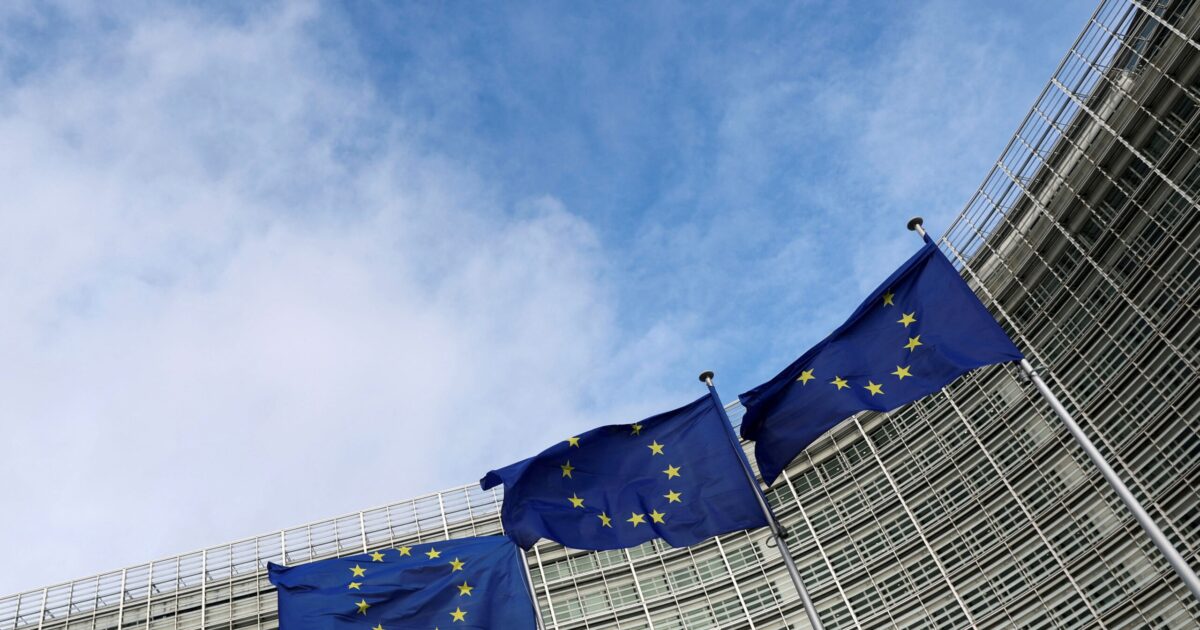Progress is made by the European Union (EU) to a plan to provide loan In Ukraine using the immobilized assets of the Central Bank of Russia as part of efforts to meet Kiev’s growing financial needs as the 3 1/2 years war continues.
Specifically, Economy Commissioner Valdis Dobrovskis said that “there is a willingness for constructive participation. Member States see it as a possible way forward and we must prepare it all relatively quickly ”in the so -called compensation loans on Saturday (20.9.25) after a two -day meeting of EU finance ministers in Copenhagen, where the proposal was presented, according to Bloomberg.
The EU and its allies are looking for ways to raise money, as Ukraine’s needs have increased due to war efforts. The International Monetary Fund will provide an assessment in the coming weeks, which will help to form the volume of EU aid as soon as there is clarity with the possible participation of the US and other G7 members, according to Bloomberg.
The European Commission, the EU Executive Body, is promoting a proposal on the basis of which the assets will not seize one of the main concerns about Euroclear, the Brussels -based offsetting office that holds the binding assets, and the European Central Bank, where the residues is created.
The rest of the cash will be replaced by bonds to ensure that Russia maintains its legal claim on assets, according to people who know the matter. The balance will then be granted in the form of various loans to Ukraine, which will not have to repay if Russia does not repair the damage it caused during the war.
About 175 billion euros ($ 206 billion) in cash has been created by overdue assets. About 45 billion euros are used in the context of a separate G7 aid program for Kiev, which would leave about 130 billion euros available, one of the people said.
One of the most sensitive elements, and critical to ensure that the mechanism remains legally strong, is the guarantees provided by Member States.
Among the options examined is their bilateral provision to avoid the possible veto of Member States such as Hungary, which has delayed Ukraine support efforts. In addition, Dobrovsky said the mechanism should be scaled to include other G7 countries.
Such guarantees would require the approval of national parliaments, a government official said. Various details of the proposal are still being processed.
The Commission is working on its plan alongside the G-7 allies and in the midst of talks between Ukraine and the IMF.
The use of frozen assets could help to put pressure on Russian President Vladimir Putin for negotiations to end war. Seeking to push him further, the EU announced this week a faster gradual abolition of Russian liquefied natural gas markets.
Such guarantees would require the approval of national parliaments, a government official said. Various details of the proposal are still being processed.
The Commission is working on its plan alongside the G-7 allies and in the midst of talks between Ukraine and the IMF.
The use of frozen assets could help to put pressure on Russian President Vladimir Putin for negotiations to end war. Seeking to push him further, the EU announced this week a faster gradual abolition of Russian liquefied natural gas markets.
Given the sensitivity and complexity of the issue, ECB President Christine Lagarde, speaking with Dobrovskis on Friday (19.9.25), said he wanted to see a written proposal. “I’m not the only one,” she added, as her institution was cautious about the options for using frozen Russian assets, given the potential impact on the euro status and financial stability.
However, Member States are open to promoting the proposal, given Ukraine’s sensitive situation and limited fiscal resources at national level to help Kiev.
“We are ready to discuss it, we want to fulfill our responsibility to Ukraine. Everything has to be carefully examined, “said German Finance Minister Lars Kleningbail
